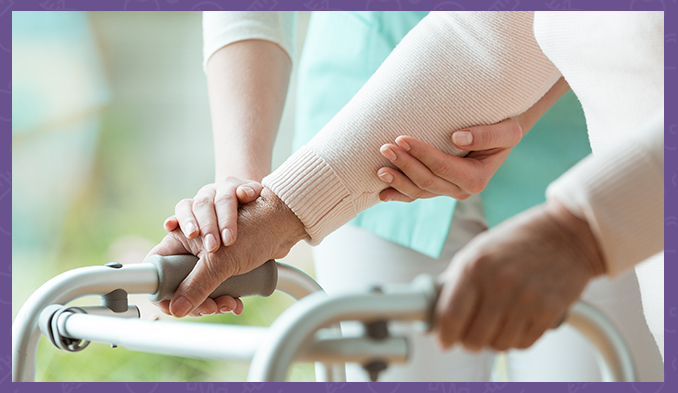Parkinson's disease (PD) is the best known form of Parkinsonism.
Parkinsonism is a more general term describing a group of neurodegenerative diseases whose clinical picture includes movement disorders similar to those of Parkinson's disease, but sometimes arising from other causes.
The main signs include:
- tremor
- Rigidity
- slowdown of movements and
- balance problems
The difference between Parkinson's disease and Parkinsonism is important because some of these other causes can be treated, while others do not respond to treatment or medication.
Not all patients with Parkinsonism suffer from Parkinson's disease. 85 % of cases with Parkinsonism are due to Parkinson's disease. Certain medications, vascular problems, and other neurodegenerative diseases can cause symptoms similar to Parkinson's disease. In fact, early in the disease process, it can be difficult to know whether a patient has typical Parkinson's disease or a syndrome that mimics it. The development of additional symptoms and the further course of the disease usually point to the correct diagnosis.
Parkinsonism, also known as the atypical form of Parkinson's disease or also Parkinson-plus syndrome (PPS) accounts for about 10% of all diagnosed cases.
Other causes of Parkinsonism, besides Parkinson's disease, include:
- Side effects of prescription medication
- Drug use
- Exposure to environmental toxins
- Stroke
- Thyroid and parathyroid disorders
- Repetitive head trauma (e.g. trauma associated with boxing practice and multiple concussions)
- Brain tumour
- Excessive amount of fluid around the brain (hydrocephalus)
- Inflammation of the brain (encephalitis) resulting from infection
- Other neurological diseases, including Alzheimer's disease, Lewy body disease, Creutzfeldt-Jakob disease, Wilson's disease and Huntington's disease
What are the typical characteristics of a PSP?
Patients with PSP begin early to have difficulty walking, keeping their balance, falling over and moving quickly and impulsively. Others have trouble walking, saying they feel like their feet are glued to the floor.
- Patients have difficulty with eye movements, especially when looking down. This makes reading difficult and can cause double vision. Patients may have involuntary blinking or closing of the eyes and difficulty opening the eyes.
- Slowed movements can also slow down normal daily activities.
- Patients may have stiffness, especially neck stiffness.
- The facial expression may change: staring forward with raised eyebrows and a frowning brow.
- Speech may become hoarse, "draggy" and "groaning", along with the onset of swallowing difficulties.
- Cognitive impairment including loss of motivation, inhibition, emotional variability (pseudobulbar paresis) and dementia may occur.
The condition differs from patient to patient. In some forms, freezing while walking and slowness are the main features. In others, early tremor and features that more closely resemble Parkinson's disease appear.
Some of the most common forms of so-called Parkinson-plus syndrome are:
- Drug-induced parkinsonism
- Progressive supranuclear palsy
- Multisystem atrophy
- Vascular (vascular) parkinsonism
- Dementia with Lewy bodies
- Corticobasal degeneration
How is Parkinson-plus syndrome diagnosed?
Parkinson-plus syndrome (PPS) is diagnosed based on history and neurological examination. When the disease is just beginning, it can look very similar to Parkinson's disease and this can make diagnosis difficult. There is no specific blood or other test to prove the diagnosis. Occasionally an MRI can be helpful in making the diagnosis due to the finding of reduction/contraction of certain areas in the brain (midbrain and frontal lobe) in Parkinsonism.
Controlling Parkinsonism:
Treatment for both Parkinson's disease and atypical forms largely overlaps and consists of levodopa medications as well as physical therapy and rehabilitation, antidepressants, speech rehabilitation, etc.
For more information, we at Medical Karaj are at your service.
Call us on the following numbers "Medical Karaj": 0879 977 401 or 0879 977 402.
Also keep an eye on our constantly updated Facebook content.









